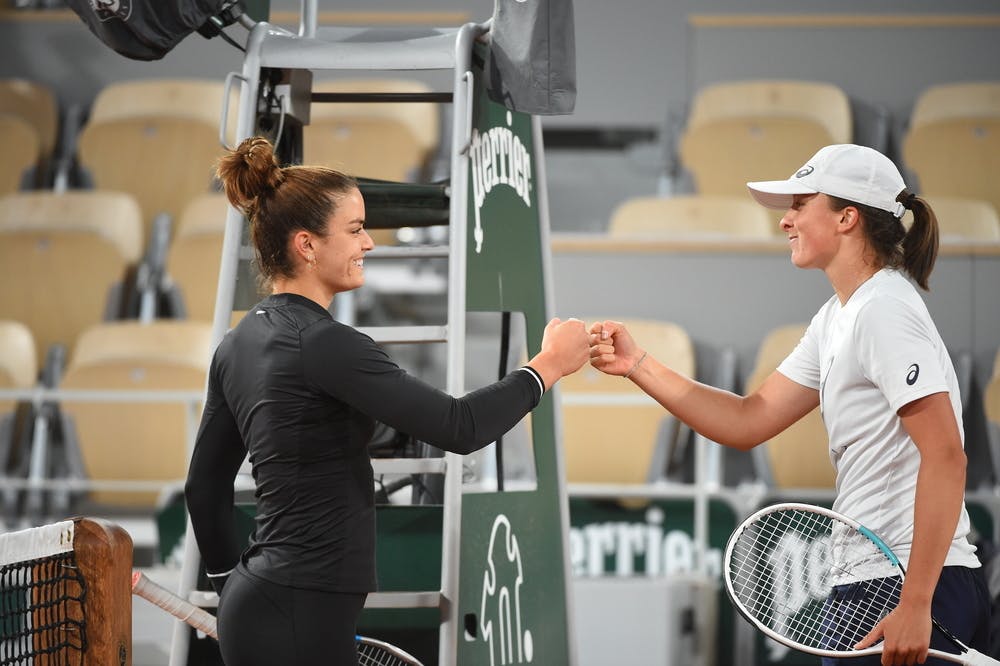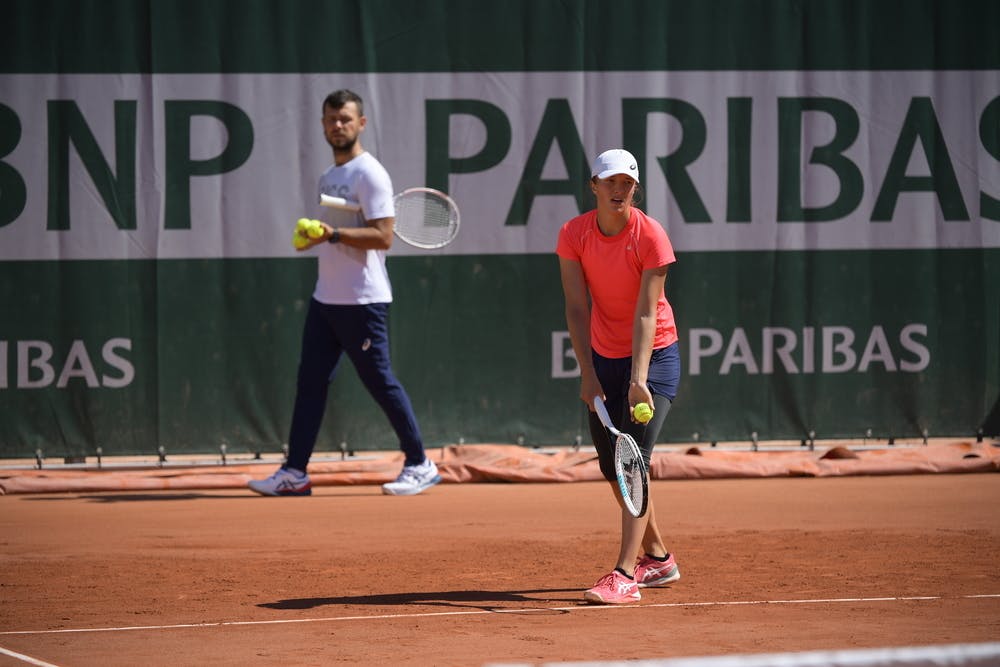Unlike Swiatek, Sakkari’s ascent has been more of a slow-burner. Hill said he initially held concerns when the 25-year-old agreed a break was needed, following a second-round exit in Rome on the eve of Roland-Garros.
Sakkari’s clay-court season had yielded three early three-set losses, in stark contrast to Swiatek’s, which reaped the title in the Italian capital.
“The last couple of years with Covid and the bubbles and everything like that you have to be flexible, you have to adapt,” Hill said. “I just told her you need to go and take some rest. She wasn't enjoying being on the court.
“For me, I thought the only way we're going to have a successful tournament here is if she wants to be on the court. She took about a week off, maybe eight days, and then she called me saying she was ready to be back on the court.”
The downtime worked wonders. Sakkari eliminated Belgian 14th seed Elise Mertens and last year’s finalist Sofia Kenin back-to-back to reach the last eight in Paris.
Hill, a self-confessed tactical fanatic, was pleased at the growth he had witnessed translated to results at a major.
 ROLAND-GARROS
18 May - 7 June 2026
ROLAND-GARROS
18 May - 7 June 2026



